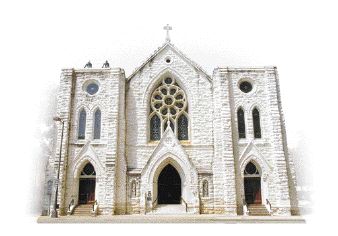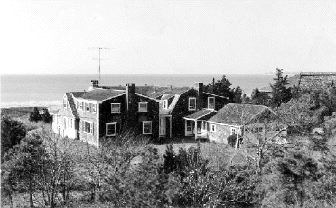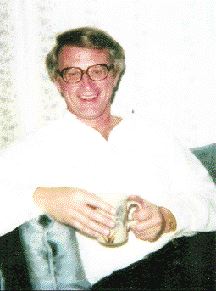Part 2
Delaney's Decision
By Darren Barbee
[Fort Worth TX] Star-Telegram
June 5, 2005
[See also Part 1: Long-Secret Documents Reveal That Fort Worth Bishop Was Aware of Priest's Troubled Past and Part 3: More Allegations. Photographs interleaved in these articles originally appeared in a gallery that accompanied the stories.]
"In view of the past, I understand the current risks involved and hereby pledge my financial assets towards any settlement the diocese may have to make on my behalf."
-- June 1988 letter from Teczar, asking Delaney for permission to work in the Fort Worth diocese.
Should he take the priest?
Delaney needed clergy in the summer of 1988. But, in an unusual step, the Diocese of Worcester required him to take full legal responsibility for Teczar -- in writing -- three years before he was officially a part of the Fort Worth Diocese.
Delaney was concerned that Teczar had been suspended and that other bishops had rejected him, he later said in a deposition.
Most of the information Delaney said he received was related to the Maciorowski matter: reports from the House of Affirmation, interviews with Teczar's therapist, a letter from the Worcester Diocese and conversations with Teczar himself.
Delaney did not order new psychological tests for Teczar, instead relying on a 3-year-old report from the House of Affirmation.
On June 12 and June 13, 1988, Teczar came to Fort Worth. He told Delaney he had been sexually attracted to adolescents, but now saw his past behavior as bizarre.
He also told Delaney that he was living at his mother's home on Cape Cod, Mass., had held two jobs to support himself, and could live off of his mother's wealth without working.
"But he has had a deep desire to return to ministry," Delaney's notes state.
The next day, June 14, Gilbert Skidmore, Teczar's therapist at the House of Affirmation, told Delaney about the priest's past problems of impulsively acting out sexually with adolescents.
But Skidmore also said the priest's therapy was successful and that he had matured. Gone were Teczar's impulsiveness, poor judgment and terror of authority figures. "His personality problems have been generally resolved," according to Delaney's notes from the conversation.
Teczar "no longer has the need to seek out adolescents for companions, and this means he no longer finds them irresistible sexual objects," Skidmore told Delaney.
Teczar was willing to go the extra mile that June. In view of his past, Teczar, a millionaire's son, pledged his financial assets toward any settlement the diocese might have to make because of him. But years later, when the diocese settled the lawsuit, he paid nothing.
There were loose ends Delaney didn't tie up in 1988. For instance, he spoke with Page, the Worcester monsignor, who told him Teczar had "not only one incident but others," according to Delaney's notes.
Page didn't go into what those incidents were, Delaney said in his deposition.
"He just said that they were -- nothing had ever been proved, nothing was clear, but that there were some suspicions about his commitment to celibacy in the past," Delaney said in his deposition. Delaney didn't ask for any details. But only two years before, Page had described Teczar's past in greater detail for the bishop of Norwich, citing the "trail of damaged youngsters" the priest had left behind.
Delaney also called an old friend of his, the Rev. Michael Jamail, a psychologist, and asked his advice. Jamail reasoned that if Teczar was emotionally immature, as Skidmore had indicated, Teczar's sexual acting out with children didn't mean that he was "acting as a pedophile," according to Delaney's notes.
"If he has matured (as the counselor stresses), then he will relate to adults in every way, including sexually, and not find the young so attractive," Delaney wrote.
And if he had not matured? Delaney's notes don't reflect whether he asked that question.
On July 13, 1988, Delaney wrote to Worcester Bishop Timothy Harrington: "Having thought the matter over and prayed over it, I am now writing to tell you that I am willing to give Father Teczar an opportunity to get back into active ministry, fully aware of the possible risks that may be involved."
Years later, in his deposition, Delaney said he meant the risk of bad publicity from the Maciorowski incident.
"At that time, he seemed to be safe," Delaney said in an interview last month. "And a good minister."
But others did not share Delaney's confidence. On Sept. 13, 1988, a Worcester Diocese attorney urged Harrington to require Fort Worth to take legal responsibility for Teczar to "lessen the potential for future liability."
Delaney saw the attorney's letter, but was willing to take a chance.
He wrote to Harrington in October 1988, saying that he did not have concerns "about Tom's past problem."
"If I had any fear that that problem would ever arise again I could not and would not accept him at all for any length of time. Instead, I am confident that he will be able to give effective priestly service in the future in spite of the past difficulty."
 |
| [St. Patrick cathedral] |
By then, the priest had already worked at St. Patrick Cathedral in Fort Worth, where he served for eight weeks. Beginning in September 1988, he served for a year as an associate pastor at St. Michael Catholic Church in Bedford, Teczar said.
Delaney's 1988 files note that Teczar should be supervised during his time in pastoral ministry. In his deposition, Delaney said such supervision is typical for new priests.
In August 1989, with what must have been growing confidence in the priest, Delaney sent Teczar to lead the tiny parishes in Ranger, Strawn, Cisco and Eastland. He sent no one to supervise him.
In an Oct. 4, 1989, letter, he told Teczar that he had suggested a mentor for him but that the priest would not report to Delaney or anyone else about Teczar's activities.
"There was no need or call for it," Teczar said in an interview.
Though the bishop did not know it yet, Teczar would be coming back for visits to Bedford.
A new setting
"He admitted it was inappropriate."
-- Delaney's notes, January 1991, after learning of Teczar's visits to two young men in Bedford.
Teczar didn't like the barrenness of Eastland County, though he said he did like the people. In Ranger, he drove his dark blue Mercedes past rusted street signs and clumps of cactuses -- but would often head back to his family's 10-bedroom house on Cape Cod with its 105 feet of private beach, said Ernitz, Teczar's sister.
He had wild parties there, she said.
"They had grand old times," she said.
 |
| [Teczar home on Cape Cod] |
Teczar said he threw parties, but they weren't wild.
Teczar told Delaney he was unhappy. "I can walk in these Texas boots, but the fit is not comfortable," he told the bishop, according to a deposition given by Teczar.
But to the parishioners in the small town of less than 2,500 people, Teczar was kind and generous. He bought ornate candelabras, an expensive altar cloth and a refrigerator for St. Rita's, a congregant said.
No one in the town knew -- and Delaney did not tell them -- that Teczar had been suspended from his diocese in Massachusetts after a 15-year-old boy accused him of sexual misconduct.
Delaney didn't tell anyone that the Maciorowski family had discovered that Teczar was back in ministry in Texas, or that in January 1990 the family was demanding that the priest be removed. Delaney dismissed a letter from the family as "overwrought and overwritten," he said in a deposition. He never contacted the family, Norma Maciorowski said.
Following the Maciorowskis' complaint, Harrington, the Worcester bishop, wanted Teczar removed, too. He wrote a letter to Delaney in February 1990 informing him that Teczar no longer had his approval to function as a priest.
But Delaney had the authority to keep Teczar working in the Fort Worth Diocese, and he did so.
By October 1990, Massachusetts prosecutors were pursuing a charge of providing alcohol to a minor against Teczar, but they dropped a charge of sexual abuse.
On Oct. 11, 1990, as part of the court case, Delaney wrote a letter to Teczar's attorney, stating, "He is not working with young people in his present assignment." At the time, Teczar was heading churches with at least eight altar boys in Ranger, Cisco, Strawn and Eastland, according to his deposition.
Delaney also wrote that Teczar had begun a new phase of his life, fully intending "to avoid even the appearance of anything untoward in the future."
About three months later, on Jan. 15, 1991, Teczar returned to Worcester, where he pleaded guilty to misdemeanor charges of contributing to the delinquency of a minor and furnishing alcohol to a minor. He was fined $375, according to court records.
Ten days later, Delaney called Teczar to the chancellery in downtown Fort Worth to discuss a new problem.
Delaney had learned that Teczar was driving 90 miles -- it isn't clear how often -- from his new assignment in Ranger to visit two young men in Bedford, where he had served in 1988 and 1989.
Delaney requested that Teczar no longer socialize with anyone under age 25, according to the bishop's handwritten notes. Teczar agreed that the requirement was necessary, but it would be like "walking on eggs," he told Delaney.
Teczar said in an interview that he has no recollection of the Bedford men.
In a deposition, Delaney said he believed the priest would keep his word.
The meeting ended, Teczar returned to Ranger, unsupervised. For the next three years, he took advantage.
Painful memories
"I warned T [Teczar] he had an obligation to report the sex abuse."
-- Delaney's notes following a March 18, 1993, conversation with Teczar.
John Doe has had the dream many times. He holds a 12-gauge shotgun, pointed at Daniel Hawley.
In Ranger, Hawley had raped John over a period of more than two years, beginning in 1990, when John was about 12.
His more violent dreams involve Teczar.
John Doe, a former truck driver, is now 27 and lives in Abilene. He believes the Fort Worth Diocese protected Teczar, even as police were asking for the church's help to investigate him.
In St. Rita's rectory, Teczar's personal possessions included a vibrator and a camera.
It was there that Teczar had sex with John's abuser, Hawley, and another man, DeWilliam Bixler. He photographed both men naked, according to a statement Hawley gave police.
Teczar said he did not take the photograph. But he looked through Hawley's stack of Polaroids of naked, vulnerable boys from Ranger.
Hawley offered Teczar more than photos. He and Bixler were by then raping as many as seven boys, according to police reports. Two girls may also have been molested, according to police reports. The children were ages 7 or 8 to 16.
Hawley offered to bring a minor to Teczar's house, according to a letter Hawley wrote. Merritt said he wrote the letter at the request of the diocese. "Thomas Teczar stated 'It's tempting but no! I've been through therapy and I just couldn't do it.' He advised me to stop messing with young boys," the letter said.
Teczar said he knew Hawley and Bixler were abusing children, but did not report it to police.
"I didn't know I had an obligation to do that," Teczar said in an interview last month.
 |
| [Teczar in an undated photo] |
By January 1993, police had begun investigating Hawley and Bixler. When Teczar found out, he finally took action.
He went to Hawley's house in Ranger and warned him to "get rid of" the Polaroids he had taken of his victims, Teczar said. Hawley said in a statement to police that he burned two photos of boys, including one of John Doe.
More than a decade later, Teczar defends his actions.
"At the time, there were no charges against Daniel whatsoever," Teczar said in a recent interview. "I had no proof that the police were coming."
In August 1993, Hawley admitted what he had done and pleaded guilty to aggravated sexual assault. He received a 35-year prison sentence. In January 1994, Bixler was sentenced to 34 years in prison.
By March 1993, White, the sheriff, was suspicious that Teczar might be involved, too. White, who knew nothing of Teczar's past, called the Fort Worth Diocese at least three times during his investigation and left messages asking for help.
His last call was placed after Teczar refused to testify before an Eastland County grand jury on March 17, 1993.
Leslie Vance, the former Eastland County district attorney, said in an interview he believes the diocese hampered the investigation.
"We expected the church to respond to our request for help in running down leads that involved possible sexual abuse of children," Vance said in a deposition. "And we could not understand why that was a problem."
Delaney said in an interview last month that he was unaware of attempts by law enforcement officers to contact him.
"Neither I nor anybody I talked to at the Catholic Center has any recollection" of a call, he said. "Certainly nothing ever came in the mail. It came as a complete surprise to us that they're saying that. We never heard from them, as far as I know, at all."
But Teczar had already hired two attorneys, and he met with them and Delaney at the Fort Worth chancellery on March 18, 1993, according to a note Delaney put in the Confidential Files.
In the meeting, Delaney learned that White and Vance were suspicious that Teczar was involved in pedophilia with Hawley and Bixler.
Delaney said the attorneys made him feel uneasy.
"There was a lot I didn't want to know at that point," he said.
Teczar's attorneys were the ones who said he needed to get out of the diocese, Delaney said.
"I don't remember very much. It was a huge surprise. They came up to see me," Delaney said in a recent interview. "They did most of the talking and spun this whole thing."
In his notes, Delaney wrote that Teczar "will have to devise something to tell the parish."
In an interview last month, when Delaney was asked why he didn't direct Teczar to tell parishioners the truth, the bishop answered, "To what end?"
In 2002, John Doe filed a complaint with the Texas Rangers alleging that Teczar had joined in the abuse against him. In April of this year, the diocese agreed to pay him $2.75 million to settle his lawsuit. Most of the money is set aside in a trust to pay for expenses such as counseling, Merritt said.
Teczar said that he never met his accuser and that the criminal case was filed to bolster the man's claims for money. Teczar said he is accused, for instance, of abusing the boy in a plane with Hawley. But Teczar said he never flew a plane or had a pilot's license.
John Doe said he came forward after he was contacted by Lewcon, the Massachusetts man who says he was victimized by Teczar in 1971 when he was 16. Lewcon said he found John Doe by contacting people in Ranger after finding out that Teczar had worked there.
John Doe said Lewcon "told me that Teczar was still loose."
"Then, I found the strength to call the authorities about Teczar to make sure he didn't hurt any other child," he said.
In recurring dreams, John Doe shoots Hawley. He dreams of running Teczar down in an 18-wheeler.
"We're talking about driving over him, running over him, running over him, you have 18 tires, just trickling over him, one at a time," he said in a deposition.
[See Part 3: More Allegations.]
Any original material on these pages is copyright © BishopAccountability.org 2004. Reproduce freely with attribution.